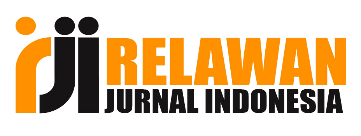Peningkatan Kemampuan Guru Dalam Pengembangan Silabus Kurikulum 2013 Melalui Pendekatan SGM
DOI:
https://doi.org/10.32672/jkk.v2i2.43Abstract
This research is an action research aiming to improve the ability of MAS Al Kamal, MAS Baitul Arqam and MAS Asaasun Najah teachers in developing the 2013 Curriculum Development through the use of the SGM (Small Group Mentoring) approach. The main benefit of this research is that teachers can make the 2013 Curriculum Development in accordance with the provisions in the Process Standards, carried out in January 2018 to March 2018 with the research subjects 12 of MAS Al Kamal, MAS Baitul Arqam and MAS Asaasun Najah teachers. Research procedures include planning, implementing actions, observing, and reflecting and evaluating. The main data is the teacher product in the form of Curriculum Development 2013. Supporting data consists of the level of teacher participation in learning activities and teacher responses to the implementation of activities. Data is collected through observation, product evaluation, and questionnaire. Data were analyzed through qualitative descriptive analysis, namely narrative data exposure through sentences to describe the data. Validity of data analysis is done by data triangulation. The results of the study at the end of the second cycle are: 1) the average value of the development made by the teacher is 88.6; 2) the number of teachers who score 80 or more is 11 (100%); 3) teacher participation in activities is 90.9% and 4) participants who gave positive responses to the implementation of activities amounted to 92.7%. Based on the results of these studies it can be concluded that the use of the SGM (Small Group Mentoring) approach can improve the ability of MAS Al Kamal, MAS Baitul Arqam and MAS Asaasun Najah teachers in developing the 2013 Syllabus Curriculum Development.
Downloads
Published
How to Cite
Issue
Section
License

This work is licensed under a Creative Commons Attribution 4.0 International License.
Copyright and License Agreement
- The author(s) owns the copyright and other proprietary rights associated with the article.
- The author(s) has the right and is permitted to use the substance of the article for the author's subsequent works, including for the purposes of lectures and books.
- The author(s) grants the first publication rights to the journal under a Creative Commons License (CC BY 4.0).
Creative Commons CC BY 4.0 License Statement
You are free to:
- Share — copy and redistribute the material in any medium or format;
- Adapt — remix, transform, and build upon the material
for any purpose, even commercially.
The licensor cannot revoke these freedoms as long as you follow the license terms.
- Attribution — You must give appropriate credit, provide a link to the license, and indicate if changes were made. You may do so in any reasonable manner, but not in any way that suggests the licensor endorses you or your use.
- No additional restrictions — You may not apply legal terms or technological measures that legally restrict others from doing anything the license permits.











